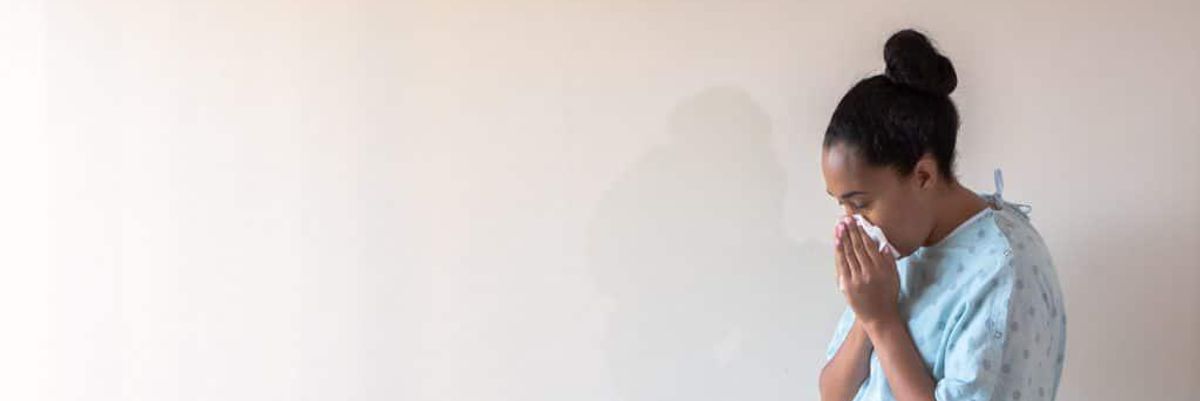Covid-19 Puts The Health Of Puerto Rican Mothers in Crisis

Covid-19 has made pregnancy difficult for women all over the country but perhaps nowhere more so than in Puerto Rico. Recent data shows Black and Latinx populations, marginalized, and oppressed communities have higher rates of COVID-19 and are more likely to die from it.
For birthing families in Puerto Rico, this means less access to care in an already overburdened system, a heightened susceptibility to exposure and infection, and increased adverse maternal health outcomes. COVID-19 is overwhelming healthcare systems and is most hurtful for populations who already live with inequitable health structures and health disparities.
As a result, the human costs are adding up. Puerto Rico with about 3.2 million people, reported 8,585 cases of COVID-19 and at least 155 deaths as of July 7. But experts warn more testing is needed to accurately assess its real impact.
As COVID-19 has exacerbated the birth equity and health outcomes, it has become clear, more needs to be done so vulnerable groups are not left behind.
Recently, the governor of Puerto Rico indemnified doctors from legal responsibility for actions to decrease COVID-19 spread. Yet the impact on maternal health complications, especially when it comes to labor and delivery, is worrisome for healthcare experts. It is creating a perfect storm for lessening the little autonomy pregnant women have.
Birthing families are being forced to choose between having a doula or a birth partner present. At 49%, Puerto Rico already has high cesarean rates, compared to a 33% national average that is on the rise along with adverse impacts on breastfeeding.
With heightened fears of COVID-19 transmission, Alondra, a mother from Puerto Rico says she had a cesarean and was kept in isolation due to a suspected fever.
“I heard my daughter cry and I thanked God. But even though I heard her cry I wasn’t able to see her. I was taken to an isolation room because of COVID-19 protocols. I didn’t see my daughter until three days later, through a cell phone screen for 20 minutes. I was expressing milk to feed her, but they wouldn’t give it to her. My baby was also isolated. I had to recover alone, without my husband and newborn, waiting three days for results that never came. I was in tears and living in sadness when it was supposed to be the best time of my life.”
In these challenging times, health responses to COVID-19 must include birth equity and the needs of vulnerable birthing families facing the greatest hardship. COVID-19 complications must be tracked and treated. Support funding must be made available for pre and postpartum healthcare, mental healthcare, community-based doulas, peer childbirth educators, and lactation counselors to provide much needed emotional and informational support.
Most importantly, birthing parents must be allowed to have the two companions guaranteed by Puerto Rican law. This is critical to ensure mothers and infants are together to practice skin-to-skin contact, kangaroo mother care, and rooming-in to help establish breastfeeding.
“As a mother and an advocate I am very concerned about the disparities in systems in Puerto Rico that leave women and infants especially vulnerable at this time,” says Khadija Gurnah, Policy Advocacy Director at Health Connect One. “But I’m encouraged by the increased national awareness on health inequity and look forward to greater awareness bringing greater investments in maternal and child health systems.”











